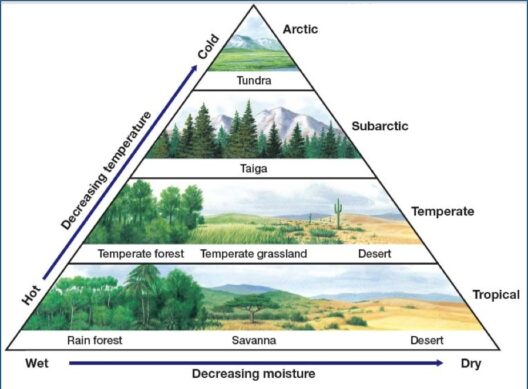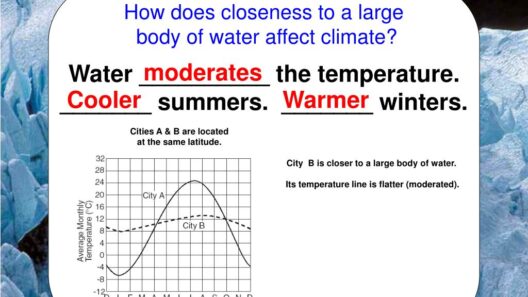The landscape of climate change perceptions among Republicans has undergone significant transformation over the last few years. As of 2025, the party’s stance on climate change presents a complex tapestry of beliefs, influenced by a myriad of factors, from economic implications to cultural narratives. This analysis delves into the nuances of Republican attitudes toward climate change, highlighting key themes, evolving perspectives, and the resulting policy implications.
The Dichotomy of Beliefs
At the core of the Republican viewpoint on climate change lies an intrinsic duality. A segment of the party acknowledges the scientific consensus surrounding climate change, recognizing its anthropogenic drivers. Yet, this acknowledgment is frequently juxtaposed against a vehement skepticism regarding governmental interventions aimed at mitigating environmental issues. Many Republicans argue that while climate change is a legitimate concern, solutions should lean heavily toward market-driven approaches rather than regulatory mandates.
This dichotomy manifests particularly in discussions around renewable energy. While some Republicans champion the adoption of clean technologies, hesitant to fully embrace the term “climate change,” others vehemently oppose policies perceived as detrimental to economic growth or infringing on personal liberties. The juxtaposition of economic pragmatism and climate accountability remains a defining characteristic of the party’s contemporary stance.
The Role of Education and Awareness
Education plays a crucial role in shaping individual beliefs about climate change. Research illustrates a correlation between educational attainment and environmental awareness. In recent years, the Republican base has witnessed a gradual increase in education levels, which has, in turn, led to an enhanced understanding of climate science. Notably, younger Republicans exhibit a more progressive stance, advocating for sustainable practices and expressing concern about environmental degradation.
This generational shift offers a glimmer of hope for a more unified stance on climate change within the party. As younger members ascend in influence, there is potential for a recalibration of party platforms that might integrate sustainability without compromising core Republican values. The emphasis on innovation and entrepreneurship in the realm of climate solutions resonates well with the entrepreneurial spirit historically cherished by Republicans.
Economic Considerations
Economic dynamics significantly influence Republican perspectives on climate change. The party’s traditional alignment with business interests fuels a cautious approach toward environmental regulations that might hamper economic productivity. In 2025, Republicans are increasingly advocating for pragmatic climate solutions that emphasize carbon capture technologies, renewable energy investments, and public-private partnerships. This trajectory reflects a broader recognition that economic viability and environmental stewardship can coexist.
Moreover, issues such as energy independence and job creation remain pivotal. Many Republicans assert that transitioning to cleaner energy sources can drive economic growth while simultaneously enhancing national security. As the fossil fuel industry faces growing scrutiny, there is an opportunity for Republicans to advocate for a just transition for workers, thereby ensuring that environmental stewardship does not come at the expense of labor stability.
Public Opinion and Party Dynamics
Internal party dynamics play a crucial role in shaping Republican views on climate change. Public opinion polls reveal a stark division within the Republican electorate. While a significant portion expresses skepticism about climate change, a notable minority acknowledges the gravity of the issue and supports climate action. This demographic split poses a challenge for party leadership, often resulting in mixed messaging that can alienate moderates while appeasing the base.
The 2025 Republican National Convention is likely to reflect these internal tensions, with potential debates highlighting the growing divide between traditionalists and reformists. The emergence of climate-focused advocacy groups within the party signals a burgeoning recognition that addressing climate change could serve as a unifying cause. These factions are increasingly influential, pushing for policies that align with both economic and environmental imperatives.
Impact of Media and Misinformation
The media landscape plays a crucial role in disseminating information about climate change, heavily influencing Republican perspectives. The prevalence of misinformation contributes to entrenched beliefs and fosters an environment ripe for skepticism. In contrast, credible reporting and rich narratives that emphasize the human stories behind climate impacts can sway public opinion, inviting Republicans to truly engage with the issue.
The rise of social media has catalyzed this phenomenon, enabling rapid dissemination of both sound science and dubious claims. Engaging platforms that promote robust, factual discourse about climate change can aid in dismantling misconceptions and fostering a more informed electorate. As Republicans grapple with these dynamics, harnessing the power of media for constructive communication about climate solutions will be paramount.
Conclusion: A Path Forward
The evolution of Republican thought surrounding climate change in 2025 encapsulates a multitude of perspectives, shaped by educational attainment, economic challenges, and internal party dynamics. The path forward necessitates a recognition that environmental stewardship and conservative principles need not stand in opposition. By embracing market-based solutions, fostering innovation, and engaging with constituents on the importance of climate action, Republicans can carve a niche that resonates with both their advocacy for economic growth and the pressing need for environmental sustainability. The dialogue surrounding climate change is critical, and as the party navigates this complex terrain, its ability to articulate a cohesive and forward-thinking strategy will define its legacy in environmental policy.




